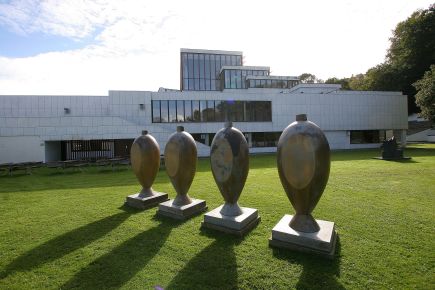Aalborg Historical Museum
The Aalborg Historical Museum contains the well-preserved underground ruins of a medieval Franciscan friary, including a walled cellar and the foundations of the chapel. Enter via the elevator outside the Salling department store. Another favorite attraction is the Renaissance chamber Aalborgstuen, which features furniture and glassware from the 16th and 17th centuries.




